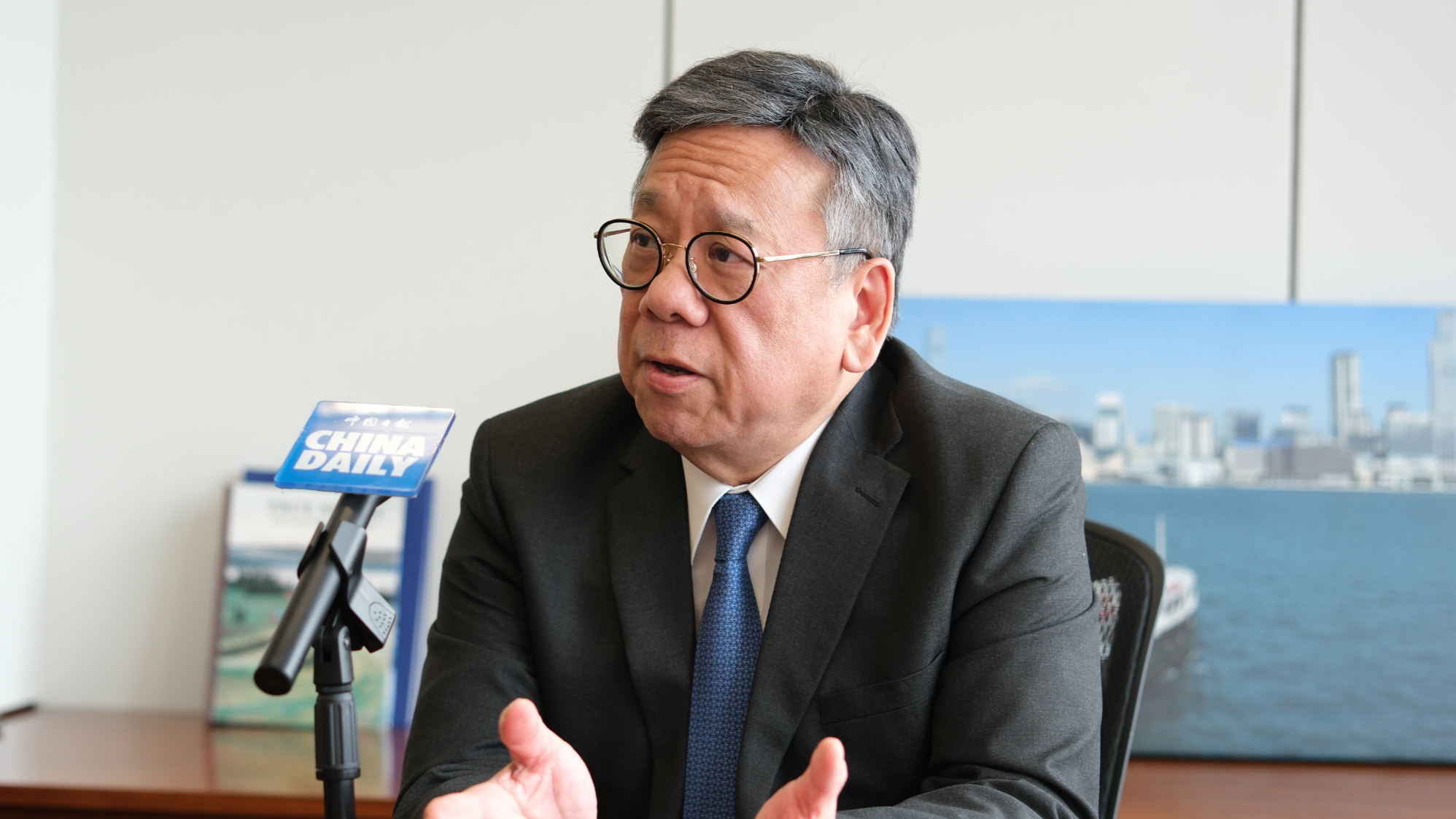
Hong Kong is casting its net wider to forge new business and trade connections while doubling down on efforts to fortify ties with traditional partners, as the city aims to navigate the turbulent waters of global trade uncertainties triggered by the United States (US)’ so-called “reciprocal tariffs”.
Among the special administrative region’s latest moves is the expected opening of its fourth Economic and Trade Office (ETO) in Southeast Asia in Malaysia by the end of the year — following those in Singapore, Thailand, and Indonesia — Algernon Yau Ying-wah, secretary for commerce and economic development, told China Daily in an exclusive interview.
Establishing the ETO is progressing well, Yau said. This reflects Hong Kong’s commitment to expanding its exchanges with the Association of Southeast Asian Nations (ASEAN) — Hong Kong’s second-largest goods supplier, trailing only the Chinese mainland.
READ MORE: US lawmakers condemned for targeting HKSAR trade offices
He also revealed that talks are underway with the Saudi Arabian government to set up the SAR’s second ETO in the Middle East, following the launch of its first office in Dubai, the United Arab Emirates, four years ago.
“We are expanding our trade network, not limited to the Western countries,” Yau said, adding that Hong Kong may expand its trade offices into Latin America, building on its free trade agreements with Chile and Peru, the latter of which was inked in November.
Hong Kong now operates 14 ETOs across the Asia-Pacific, Europe, the Middle East, and North America. These offices are tasked with advancing Hong Kong’s economic and trade interests while providing support for overseas enterprises seeking to establish or expand their presence in the city.
Beyond the countries and regions that the ETOs cover, Yau said Hong Kong is eyeing business opportunities in Central and Eastern Europe, such as Hungary and Georgia, as well as the emerging markets of Central Asia, including Kazakhstan.
Yau’s remarks followed a months-long string of economic and trade trips, during which he visited around 10 places to promote Hong Kong’s advantages as a global business hub. His travels included the Chinese mainland, France, and a delegation to Qatar and Kuwait led by Hong Kong’s leader John Lee Ka-chiu in May.
Reflecting on his exchanges with local officials and business leaders during the visits, Yau said he found that although geopolitical uncertainties have “made people worry about doing business here and there”, Hong Kong’s appeal remains robust as it is a free port with no tariffs.
Many are increasingly considering the city as a springboard to the Guangdong-Hong Kong-Macao Greater Bay Area (GBA), a big market boasting a population of 86 million and an economic output of around 14 trillion yuan ($1.95 trillion), he added.
“Even though the international environment is quite challenging, they are seeing opportunities in this part of the world, and that’s why there are more people coming over to Hong Kong for investment and doing business,” Yau said.
Speaking about his visit to France in mid-June, the purpose of which was to deepen collaboration in the wine and aircraft manufacturing sectors, Yau said the SAR and Europe have enjoyed long trading partnerships, and this is reflected in the presence of 1,640 European Union (EU) companies currently doing business in Hong Kong.
The commerce chief said that Hong Kong is trying to strengthen its existing relationships with Western partners, while at the same time discover new opportunities. “We cannot stay there without improving.”
READ MORE: HK to open trade office in Malaysia amid US decoupling risks
As for the US — another of Hong Kong’s old trade partners — Yau said the direct impact of US-China trade tensions on the city “is not that significant”. Hong Kong’s exports to the world’s largest economy account for only 0.1 percent of its total export value, he said.
Moreover, many Hong Kong companies have already adapted by diverting to other markets, diversifying their manufacturing bases, and seeking alternative supply chains, which could mitigate some of the fallout.
However, Yau said that “it is not an easy game”, adding that “the indirect impact cannot be ignored” given the important role of re-exports in Hong Kong’s overall trade. “That’s why we are going overseas to look for other opportunities,” he said.
Contact the writer at irisli@chinadailyhk.com


